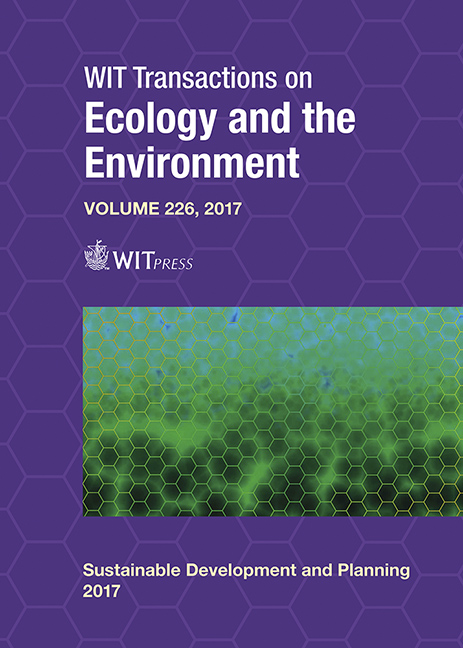THE BNQ21000 STANDARD: THE MANAGEMENT OF SUSTAINABLE DEVELOPMENT – FROM LEARNING TO AUDIT
Price
Free (open access)
Transaction
Volume
226
Pages
12
Page Range
693 - 704
Published
2017
Size
344 kb
Paper DOI
10.2495/SDP170601
Copyright
WIT Press
Author(s)
JEAN CADIEUX
Abstract
Issued in 2012, the learning Standard BNQ21000 is a non-auditable standard that focuses on the management of sustainable development (SD) within the management of manufacturing companies. This standard covers 21 corporate issues that are grouped under four themes: economic, social, environmental and moral. This frame of reference aims at guiding businesses towards the social project, as intended by the SD Act of Québec, which is based on the Rio principles. In this standard, each issue is classified according to five levels of maturity: 1. somewhat concerned; 2. reactive; 3. accommodating; 4. proactive; and 5. generative. The classified issues are thus integrated into a single table to form the self-assessment grid. The bases of good SD management begin at the 3rd level, while the inferior levels point at the most obvious gaps. This article unfolds in three parts. First, we outline the conceptualisation and learning mechanism of this standard. We explain how the principle of Sextant, which acts as the base to the self-assessment grid, enables to seize and gradually integrate the principles of SD. The second part shows the higher-level results from 40 pilot projects and conducts a review of the main developments and improvements to be made in the forthcoming standard reform. Finally, after 5 years of deployment, it was agreed to revise the Standard to extend the issues in order to cover other sectors besides manufacturing. In addition, an auditable version of the latter will be deployed. Work is set to begin in 2017. We will conclude with the discussion of various possible avenues for the overhaul.
Keywords
sustainable development, standard, social responsibility, responsiveness, societal responsibility, learning standard, BNQ21000, ISO26000





